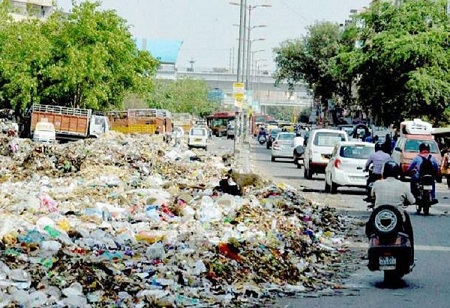A major problem for most of the urban local bodies in our country today is solid
waste management. Larger volumes of municipal solid waste are generated as a result of rapid urbanization, industrialization, and economic growth and the major challenge in cities with high population growth is Effective SWM. Unfortunately, accomplishing sustainable development in a country like India is made more difficult owing to the cultural diversity of the country.
The Waste management rules in our country are based on three major principles such as ‘sustainable development’, ‘precaution’ and ‘polluter says’, this is because these principles decree municipalities and commercial establishments to function in an environmentally accountable and responsible manner since it would help in restoring balance. The rise in the waste generation that is being generated as a by-product of economic development has led to numerous subordinate legislations. These legislations are to regulate the manner of disposal and to deal with the generated waste. These are formed under the umbrella law of the Environment Protection Act, 1986 (EPA).
There are certain compliances such as the authorization, records maintenance, and sufficient disposal mechanisms that should be followed for certain forms of waste as these are the subject matter of distinct rules and individual compliances.
Owing to rapid urbanization, the country is facing massive waste management challenges and these were discovered from recent research reports. In India around 377 million urban people live in 7935 towns and cities. This large population generates over 62 million tonnes of municipal solid waste per year. However, only a small part of it which is 43 million tonnes of waste is collected, and approximately 10 percent of it is treated which accounts to 11.9 MT and 31 MT is dumped in landfill sites.
